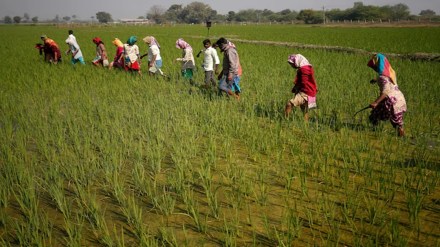The government released a draft Seed Bill on Thursday, with the objectives of ensuring traceability of these farm inputs and regulating their prices.
The proposed legislation will replace the decades-old Seeds Act, 1966 and the Seed (Control) Order, 1983.
The draft, which has been put up for public consultation till December 11, 2025 also aims to regulate the quality of seeds and planting materials in the market, and curbing sale of substandard and counterfeit seeds.
Key objectives of the draft Bill include regulating seed quality, ensuring farmer access to affordable high-quality seeds, eliminating spurious products, liberalising seed imports for innovation, and protecting farmer rights through transparent supply chains.
Experts, however, said the proposed legislation does not compensate farmers against underperformance of seeds and does not transfer adequate power to states to regulate the sector.
The Bill proposes to decriminalise minor offences to ease compliance burden while retaining stringent penalties for serious violations, a move aligned with the government’s ease of doing business initiative, the ministry stated.
Experts said the proposed legislation does not compensate farmers against underperformance of seeds and it does not transfer adequate power to states to regulate the sector.
Under the existing provisions, certification of seeds is not mandatory while private players are currently selling seed as ‘truthfully labeled’. This type of seed does not come under the purview of the department of seed certification.
Drive to avert shortage of fertilisers
The departments of fertilisers (DoF) and the agriculture ministry have jointly carried out a comprehensive nation-wide drive to secure fertiliser supply chains and ensure adequate supply of the soil nutrients.
According to the DoF, 3,17,054 inspections and raids were conducted across the country to monitor the distribution network of fertilisers during the last kharif season.
The drive is continuing in the ongoing rabi season.
Several parts of the country in the last kharif season faced shortage of urea as demand of the soil nutrients rose while import had declined leading to black-marketing.
“Working in close coordination with state governments, effective enforcement action on an unprecedented scale including raids, inspections, and legal measures to curb black marketing, hoarding, and diversion of fertilizers has been taken by the district authorities,” the DoF said.
For the current rabi season (October-March), demand of varieties of fertilisers is pegged at 37.87 million tonne (MT) including urea (19.6 MT), Diammonium Phosphate (5.34 MT) and Muriate of potash (1.56 MT). Opening stock on October 1 was urea (3.73 MT), DAP (2 MT) and MOP (0.7 MT).
